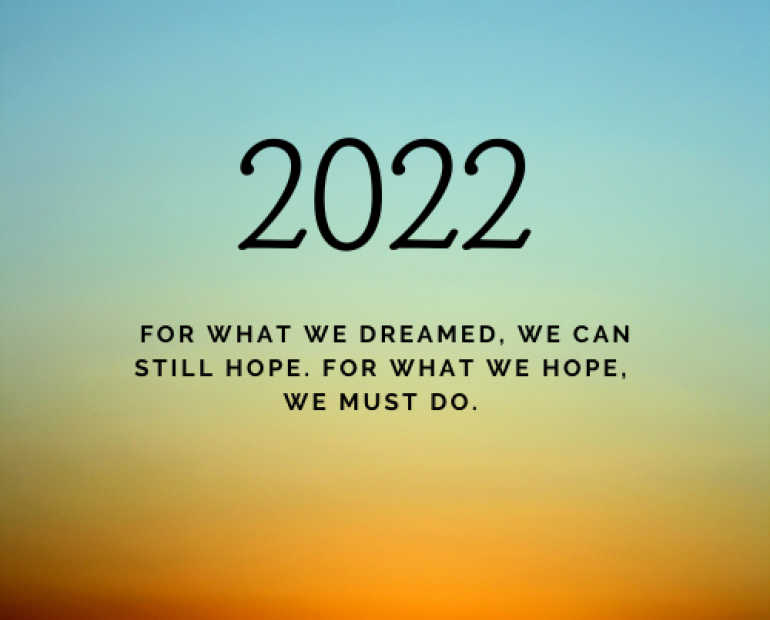
The mystery behind the failure of our New Year’s resolutions
New Years is generally perceived as a new start where people have the chance to change something in their lives. This is why every year between Christmas and New Year’s we will sit down to formulate goals and aims for the new year despite the fact that we know exactly that we will give up in at least a few weeks. And this is a fact considering the circumstance that we are making pretty much the same resolutions every year: we want to reduce the amount of stress we have, spend more time with family and friends, we want to lose weight, stop smoking, do more sports etc.
So why do we hang on to this seemingly useless ritual? There are two simple reasons:
1. First of all formulating resolutions is an attempt to control one’s life. In today’s age stress is an unwanted, albeit integrated partner in our lives due to a change in the speed of life and social structures. In addition to that, people often feel that there is a great incertitude in life as many events seem to be uncontrollable. New Year’s resolutions, however, give people the impression that they have the possibility and power to control their lives and they thereby act as a natural way to minimize stress and foster self-confidence.
2. Secondly, we humans are unrealistic optimists. This does not only mean that we think that we can achieve more than we actually can, but also that we can conjecture reasons for our actions. This quality has been a great asset in evolution and development as it makes us more active and enthusiastic and gives us the impression that the things that we do are worth the effort.
But it is a fact that our brains hate and fear big changes. Being confronted with such alarming and unpleasant events the brain will quickly seal off and return to old comfortable habits or in bad cases even worse ones.
So what can we do to succeed this year? Here are a few psychological tricks to outsmart our brains and finally enforce our goals for the coming year permanently:
• Less is more - reduce the amount of resolutions that you have for the New Year and rather concentrate on a selected few.
• Don’t make resolutions that assume that you are a completely other person. When formulating your goals for the coming year be sure you know what your personality is, qualifications, and what you can and cannot achieve. This prevents some very discouraging failures in the following months.
• Write down your goals and place them in a place where they are visible. This acts as a reminder and motivation.
• Be specific and clear about your goals. Work according to the SMART-goal method: make your goals specific, measurable, attainable, relevant and time-bound. Doesn’t “I am going to do sports and eat more healthy to lose 10 pounds in 3 months” sound much more determined than “I am going to lose weight”?
• Create a plan with intermediate goals. Aiming to do more sports in the New Year does not mean running a marathon on the first of January but rather means starting an appropriate training plan. This will allow you to keep you motivated by small successes and makes you able to follow your success.
• Don’t share your goals for the next year with everyone. New Year’s resolutions should be something personal and sharing them with others means that they will have expectations… this is an extra strain and source of stress for the brain and is therefore rather counterproductive. Alternatively, establish yourself a small support network of your closest family members or friends who support you on the way. That can be by reminding or motivating you along the way.
• Don’t wait for the 1st January: If you are really determined to reach a goal don’t wait for the New Year but start to work towards it as soon as possible, otherwise, the motivation, enthusiasm and passion that you might have had a few weeks back might have already started to fade again.
I wish you all the best for the upcoming year and a lot of success with all your resolutions.
Sources:
http://www.dw.com/de/über-die-psychologie-der-guten-vorsätze/a-17290037
http://www.geo.de/magazine/426-rtkl-psychologie-warum-brechen-wir-gute-vorsaetze
http://www.spiegel.de/spiegel/kulturspiegel/d-130987987.html
http://www.bbc.com/capital/story/20161220-why-your-new-years-resolutions-often-fail
http://www.statisticbrain.com/new-years-resolution-statistics/
http://www.orlandohealth.com/blog/the-science-behind-why-we-break-new-years-resolution






